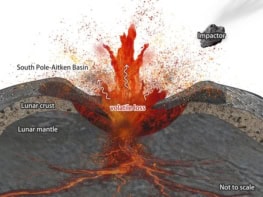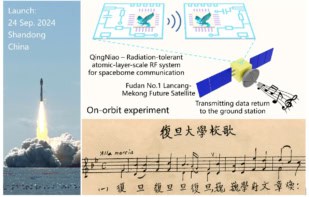A problem shared is a problem halved. For one astrophysicist in the UK, this timeless logic – combined with modern technology – can bring about a revolution in science. Chris Lintott, a researcher and science communicator at the University of Oxford, is co-founder of the Zooniverse, a Web initiative that enables the general public to play a role in a diverse range of science projects – from planet hunting to spying on penguins. These so-called citizen scientists crunch through large amounts of data, analysing images in ways that computers simply cannot replicate
In this podcast, Physics World journalist James Dacey catches up with Lintott to find out about the opportunities and challenges presented by inviting the general public into scientific analysis. Lintott talks about the overwhelming response he received when he launched his first citizen-science initiative in 2007 – an ongoing project called Galaxy Zoo that invites the public to help with the classification of galaxies by examining astronomical images. “We discovered that people are not just capable of doing the tasks that we set them, but also using that beautifully human quality of being distracted by interesting and unusual things in all sorts of different directions,” says Lintott.
Lintott believes that many citizen scientists are motivated by the desire to contribute to the scientific enterprise. He says that by getting involved with the “messy” business of dealing with raw data, citizen scientists can have a more genuine experience of doing science than the view that is often portrayed in films and the media. “Sometimes you can’t make a decision about a particular galaxy because it’s fuzzy or it’s edge on to us. I think what these projects really do is give people a sense of what that’s like,” he says. Lintott says that, for some people, involvement in citizen science can lead to a deeper interest in science and even going on to study science in a formal context or pursuing a career in science.
But while Lintott is keen to promote the opportunities presented by citizen science, he is also aware that certain aspects of these projects still need to be developed. For instance, he talks about the need to communicate the outcomes of citizen-science projects in a way that is accessible to general audiences. “We’re publishing in a way that frankly furthers our careers and makes the projects likely to get money and which communicates with our professional colleagues,” says Lintott, slightly tongue-in-cheek. Lintott is currently exploring alternative models for disseminating the research.
In the spirit of citizen-science initiatives, we opened up our interview to the Physics World audience by allowing people to submit questions for Lintott via our Facebook page. Towards the end of the podcast, Lintott tackles a couple of your questions.
If you want to find out more about these citizen-science projects, take a look at the Zooniverse website. Lintott was also profiled in our special 25th anniversary issue as one of the five people who are changing the way physics is done. Finally, you may want to take a look at this recently published feature article about another citizen-science initiative: the launch of two smartphone apps that allow the public to join in the hunt for ultrahigh-energy cosmic rays.



